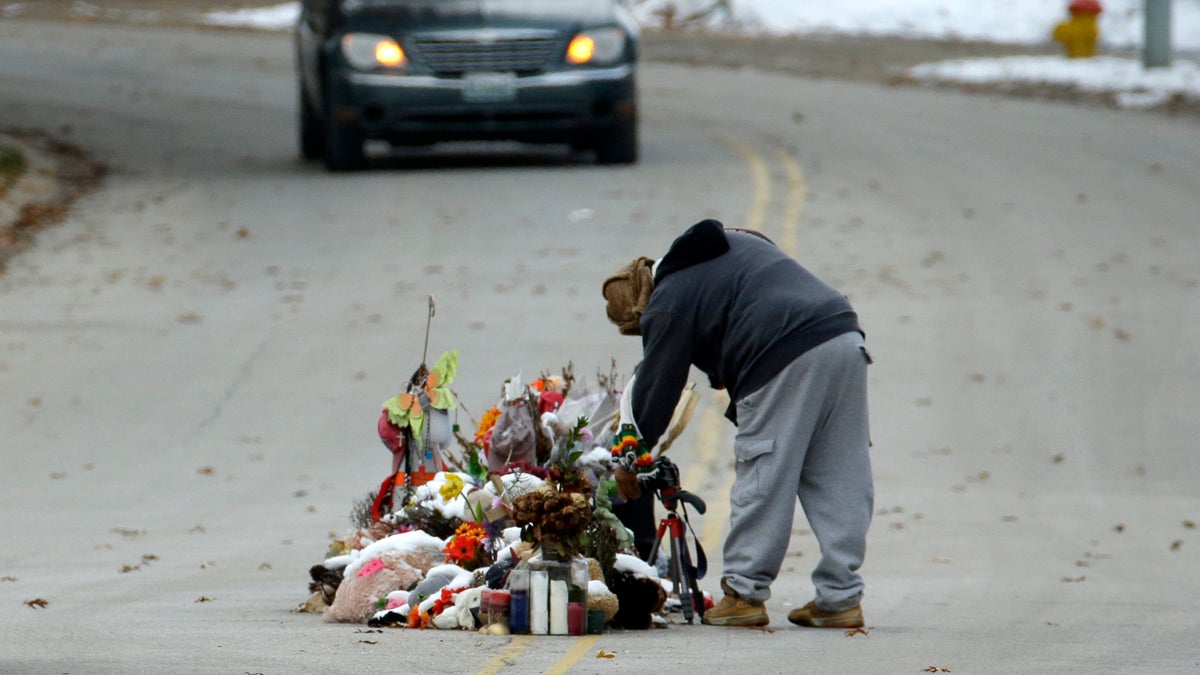As young protesters ‘seize the mic’ in Ferguson, activists discuss lessons for Philly region

A woman looks at a memorial in the middle of the street Monday
This week, Missouri Gov. Jay Nixon declared a state of emergency in anticipation of a grand jury decision on whether to indict police officer Darren Wilson in the death of Michael Brown on Aug. 9.
Nationally, the generational tensions within the civil rights movement stirred discussions about how a diverse social movement can — and should — present itself.
“This is really an ongoing public conversation, not just about Ferguson and Michael Brown, but really how Ferguson has become a flashpoint for us to think about activism and the different challenges we’re facing in society,” said James Peterson, director of the department of Africana Studies at Lehigh University.
Peterson said that older civil rights leaders were booed during protests in October (dubbed #FergusonOctober), showing what he called “seismic generational tensions” as young people “seize the mic.”
“I think what gets called generational tension … has to do with internal divisions within the African-American community about what propriety looks like,” said Pastor Leslie Callahan of St. Paul’s Baptist Church in Philadelphia who marched in Ferguson. “My perspective, as a middle-aged person, is that the young people are completely right to reject the idea that a tie is necessary to make black people human.”
It’s time to reject the need for protesters to project a certain image to express outrage, she said.
During their conversation on NewsWorks Tonight, Peterson drew out another generational tension — gender expression. “Young people are very interested in expanding the tent to include other bodies and other genders in the civil rights movement, and those things don’t always play so well with the older generation. “
“Expanding the tent” can also mean making room for people whose identities don’t fit neatly into one category, something young protesters are doing in Ferguson.
“Young leaders, they’re not pushing out people because they’re queer, because they’re trans. For them, it’s all hands on deck,” said Graie Barasch-Higgins, a community organizer from St. Louis, who is working on a public policy master’s at Rutgers University. “At least for me, and I speak as a person who is black and trans and Jewish … I think part of doing anything from an intersectional standpoint is to realize that we’re holding them all at the same time anyway.”
All three see echoes of the scene playing out in Ferguson locally — in education spending and police policy. And, Barasch-Higgins said, there are hopeful signs too.
“I think for young people, Philadelphia is a great place. Groups like Philadelphia Student Union, Youth United for Change, the Attic … are definitely doing this work and doing it from an intersectional standpoint and are organizing and demanding change,” he said.
For Pastor Callahan, the church pulpit is another place to work on expanding more humane policing. “Part of what I see my role as a pastor both within the congregation and in the community, is to say specifically to the Christian community that you cannot continue to lift up a spiritual ideal that does not include the recognition of everybody’s humanity,” said Callahan.
Peterson will be hosting a podcast for WHYY called The Remix, starting early next year.
WHYY is your source for fact-based, in-depth journalism and information. As a nonprofit organization, we rely on financial support from readers like you. Please give today.

